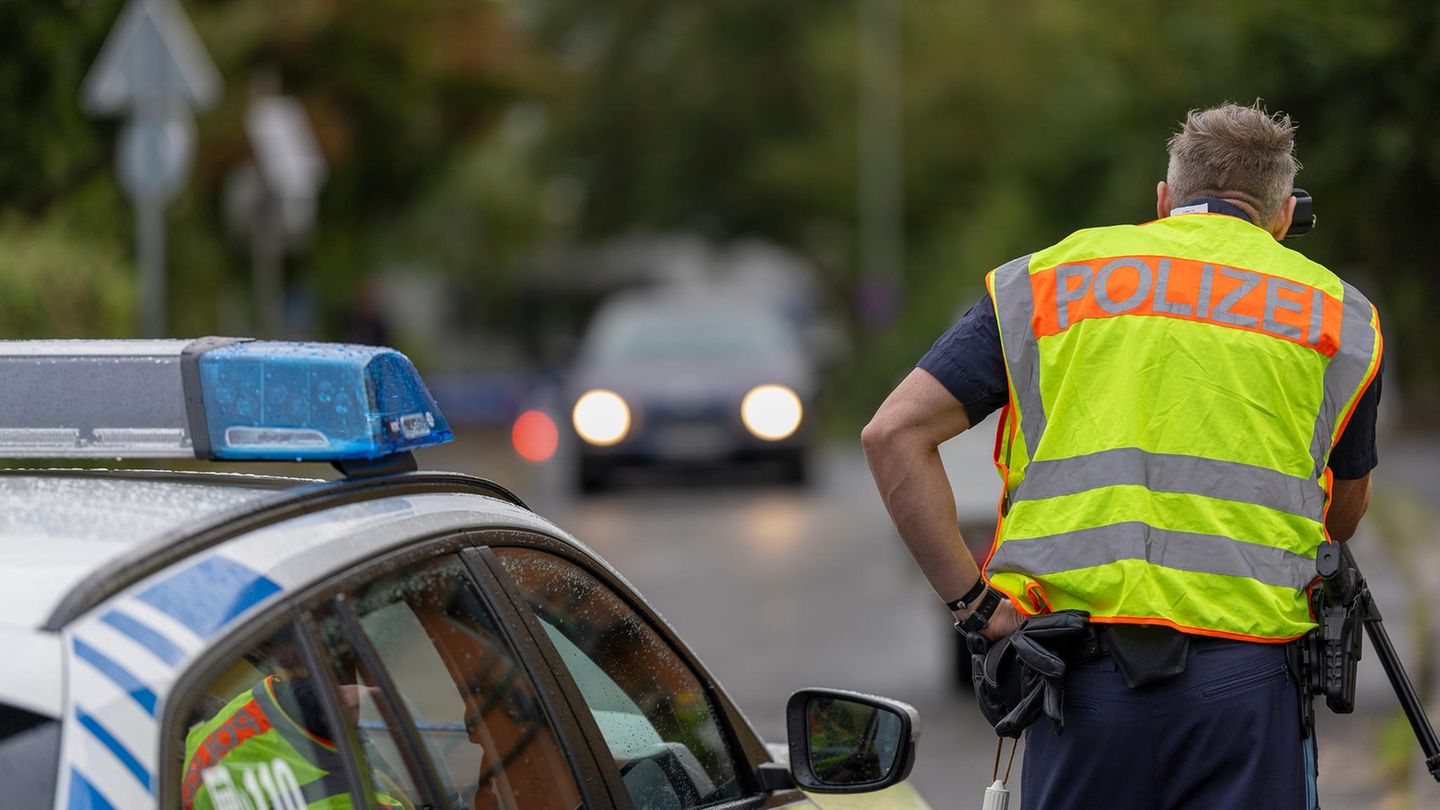closed meeting
Merz is focusing on the topic of growth for a hot election campaign
Copy the current link
The CDU leadership gives the starting signal for the decisive phase of the federal election campaign. The economy is the focus. Is there more to the Union’s survey results?
In view of stagnating poll numbers, the CDU led by Union Chancellor candidate Friedrich Merz is starting the hot phase leading up to the federal election with an “Agenda 2030” for more growth. The fact that the economy gets going again is a “prerequisite for everything else,” said the CDU leader before the start of his party’s board meeting in Hamburg. Merz wants to fight for even greater approval in the six weeks until the election.
“We can only have a good social policy in Germany with a healthy economy,” said Merz. This also applies to environmental policy. The goal is two percent growth. “It’s ambitious, but it can be achieved if, above all, we re-create some basic requirements.” In the evening, the CDU board unanimously approved a paper for an “Agenda 2030”, which aims, among other things, at tax reform, a more flexible labor market and lower energy prices.
Specifically, the CDU is proposing a tax reform in four annual steps, starting at the beginning of 2026. The income tax burden should decrease, the top tax rate only applies from 80,000 euros, and the basic tax allowance should increase annually. Overtime pay should be tax-free for full-time employment. For pensioners who continue to work voluntarily, up to 2,000 euros per month should remain tax-free. The solidarity surcharge should be abolished completely and citizens’ money should be converted into a “new basic security”.
Secretary General Carsten Linnemann said that the core of the tax plans was to relieve the burden on the broad middle, lower and middle incomes. Merz said that with the “Agenda 2030” they had consciously chosen an association with the “Agenda 2010” of the then Chancellor Gerhard Schröder (SPD). What Schröder did with the reforms 20 years ago was “essentially correct”.
According to expert estimates, the economy probably contracted slightly again last year. For 2025, the Expert Council of “Economists” has forecast an increase of just 0.4 percent.
DGB: “Attack on employees”
The German Federation of Trade Unions warned against a backwards role. “The CDU is not solving the challenges of the time with its agenda,” said DGB board member Stefan Körzell to the dpa. “The threat to introduce weekly instead of daily maximum working hours in the future is nothing other than an attack on employees.” The President of the German Institute for Economic Research (DIW), Marcel Fratzscher, said the agenda contains clever elements. But growth of two percent is illusory.
Merz: Still have potential for improvement
The CDU and CSU have been clearly ahead in surveys for months – although they have remained fairly unchanged at around 30 percent: according to the current ZDF “Politbarometer” they are currently exactly at 30 percent, and the YouGov institute recently measured 29 percent. “We undoubtedly still have potential for improvement, but that’s what an election campaign is for,” said Merz. “The election campaign begins now, and at the end of the election campaign the totals will be added up.”
There is a bit of rumbling in the Union after Merz held back on public appearances over the Christmas period and over the New Year.
Günther: After the Christmas break, it’s now a hot election campaign phase
Schleswig-Holstein’s Prime Minister Daniel Günther (CDU) said: “The less we worry about the time after the election, the more we talk about how we can get the best possible election result, the better.” He doesn’t see an open flank in social policy. “But I believe that the Union would be well advised to always pursue a two-pronged approach.” It is also about generating growth in order to strengthen cohesion.
Habeck draws level with Merz on the chancellor question
According to the ZDF “Politbarometer,” Green Party lead candidate Robert Habeck drew level with Merz on the chancellor issue. When asked who of the four candidates they would most like to see as Chancellor, 27 percent (+2) voted for Habeck, and 27 percent also voted for Merz (-2). Chancellor Olaf Scholz (SPD) got 14 percent (-2), AfD candidate Alice Weidel got 15 (-1).
Fireboat and fish sandwiches
Shortly before the exam, Merz was shown a fireboat in the port of Hamburg. He drove with a barge to the headquarters of the company VB-Group, which was founded in 2021. The company, which has around 30 employees, specializes in design and plant engineering services in energy generation as well as in shipyard and ship operations technology. In a café, Merz also met a group of 25 elected representatives and candidates for the federal election and the Hamburg state election.
dpa
Source: Stern
I have been working in the news industry for over 6 years, first as a reporter and now as an editor. I have covered politics extensively, and my work has appeared in major newspapers and online news outlets around the world. In addition to my writing, I also contribute regularly to 24 Hours World.




